
In our continuing conversation with Victor Nizet, MD, he discusses how his laboratory is studying how to repurpose antibiotics that susceptibility testing had shown to not be efficacious against certain infections.

In our continuing conversation with Victor Nizet, MD, he discusses how his laboratory is studying how to repurpose antibiotics that susceptibility testing had shown to not be efficacious against certain infections.
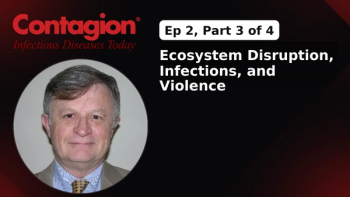
In episode 2, part 3 of 4, Robert Bransfield, MD, explains how ecological change, zoonotic infections, and neurological impairments may contribute to violent behavior.

In part 1 of our conversation, the VP of the NFID discusses ACIP’s recent meeting, including COVID-19 shared decision-making, informed-consent debates, and new policy actions on hepatitis B and MMRV.

Victor Nizet, MD, talks about some of the work his laboratory is exploring, including how they want to take a similar approach to cancer treatment when developing antibiotics as well as the need to modernize susceptibility testing to reflect treatments' true utility.

Insights from Jaya Aysola, MD, MPH, DTMH; and John C. Lin, MD candidate, on clinical workflows, social needs screening, and policy levers.

Pranita Tamma, MD, MHS, discusses recent studies comparing ceftolozane-tazobactam and ceftazidime-avibactam for drug-resistant Pseudomonas infections, emphasizing similar mortality outcomes, high rates of emerging resistance, and the importance of stewardship practices that prioritize preserving ceftazidime-avibactam for broader clinical use.

Merck’s single-dose, weight-independent antibody provides about five months of protection; EC decision pending, and it is already FDA approved in the United States.

Infectious disease pediatrician Sharon Nachman, MD, offers insights on what is already being done in clinical practice with regards to vaccines, the CDC committee's votes on the MMRV and hepatitis b vaccines, and understanding how they will affect these immunizations going forward.
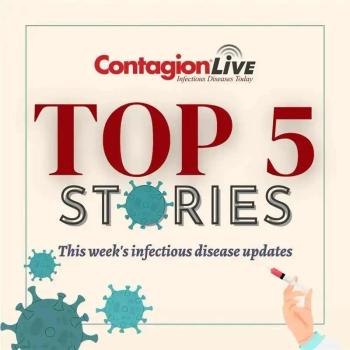
This week, OPAT for gram-negative infections expands to outpatients amid infusion complexity and stability limits, HHS and CDC add five ACIP members days before meeting, and more.
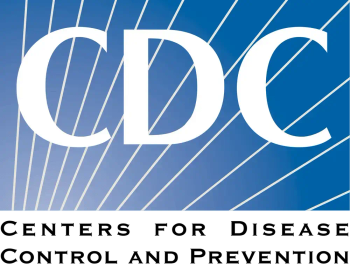
ACIP keeps broad access to COVID-19 vaccines, requests stronger informed-consent materials, and does not require prescriptions.

Victor Nizet, MD, discusses how students can thrive at the university’s Skaggs School of Pharmacy and Pharmaceutical Sciences. He discusses the school's features including its rigorous coursework, focus on research, and community-based health care opportunities.

The non-vote leaves the current immunization recommendation in place, but led to further debate amongst the CDC's ACIP panelists on the hepatitis B vaccine as well as questioning the current process of the delivery of data and whether they would be utilizing working groups and grading studies.

A recent publication describes the results of a clinician survey conducted in 2024 regarding preferences and actual practices in the management of C difficile infection in adults.

The committee voted to change the MMRV vaccine recommendation, left panelists uncertain around a second MMRV immunization vote, and delayed the hepatitis B vaccine vote until Friday.
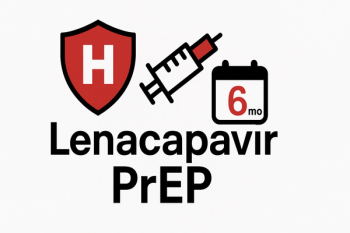
Today’s MMWR recommends twice-yearly subcutaneous lenacapavir for people ≥35 kg, citing PURPOSE-1/2 efficacy, a favorable safety profile with mostly mild to moderate injection-site reactions, and potential adherence benefits.

Eloise Williams, MBBS, BMedSci, MPHTM, FRACP, FRCPA, details how an 8-criterion genomics-plus-clinical framework narrowed 5,881 isolates to 5 strains while prioritizing safety and contemporary relevance.

Bordetella bronchiseptica is a rare human respiratory pathogen that can be initially confused for Bordetella pertussis, leading to potentially inadequate treatment. This article reviews the organism and recent literature on the successful treatment of B bronchiseptica.

Ryan Shields, PharmD, MS, discusses the challenges of incorporating newer antibiotics for gram-negative infections, how he is using broad-spectrum antimicrobial agents for these infections, and the factors he looks for in considering new agents.

TNX-4800 targets OspA to block Borrelia transmission; positive phase 1 data reported and an adaptive phase 2/3 study is planned.

Vincent Lo Re, MD, MSCE, FISPE, reviews HR-pQCT findings, IL-18 and TNF-α declines, and guidance for clinicians.

Catherine M. Stein, Evelyn Griffin, Hilary Blackburn, Kirk Milhoan, and Raymond Pollak join ACIP as the panel prepares to vote on MMRV, hepatitis B, and COVID-19 recommendations following the June reconstitution.
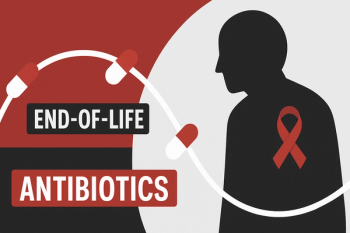
Shin Hye Yoo, MD, PhD, on a nationwide cohort showing end-of-life antibiotic use clusters in the final months, is higher in hematologic cancers, and offers a window for stewardship and goal-concordant care.

Monica V. Mahoney, PharmD, BCPS, BCIDP, FCCP, FIDSA, FIDP, FMSHP, provides insights on the outpatient side of therapy, including treating outpatients for gram-negative infections.

Sean Tucker, PhD, discusses the immunogenicity readouts, why mucosal markers matter, and what’s next as the program moves toward phase 2b.

Rodney E. Rohde, PhD, SV/SM/MB(ASCP)CM, FACSc, offers some insights on the latest diagnostics, susceptibility testing for newer antimicrobials, and how infectious disease clinicians and laboratory professionals can collaborate on challenging cases.

At the ICE-HBV Cure Symposium, EBT-107 showed reduced intrahepatic HBV DNA and no increase in chromosomal translocations, supporting a path toward first-in-human testing.

The Los Angeles County Department of Public Health updated the public on the specific local case and reminds everyone of the importance of vaccination to protect the community.

Democratic Republic of the Congo reports 28 suspected cases and 15 deaths, as Africa CDC and WHO mobilize vaccines, surveillance, and rapid response teams to contain the 16th Ebola outbreak since 1976.

Daniela Weiskopf, PhD, of the La Jolla Institute for Immunology, discusses her research in this area including the unique findings and pathways for therapeutics.
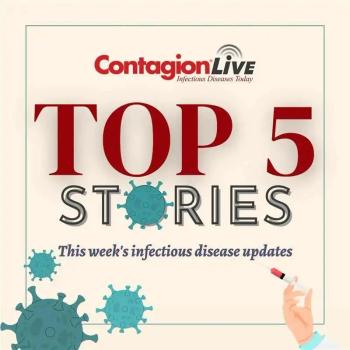
This week, US measles totals reached 1,454, a 750-plus-day SARS-CoV-2 infection in a person with HIV informed care, implementation science efforts advanced access, and a universal flu adjuvant showed promise.